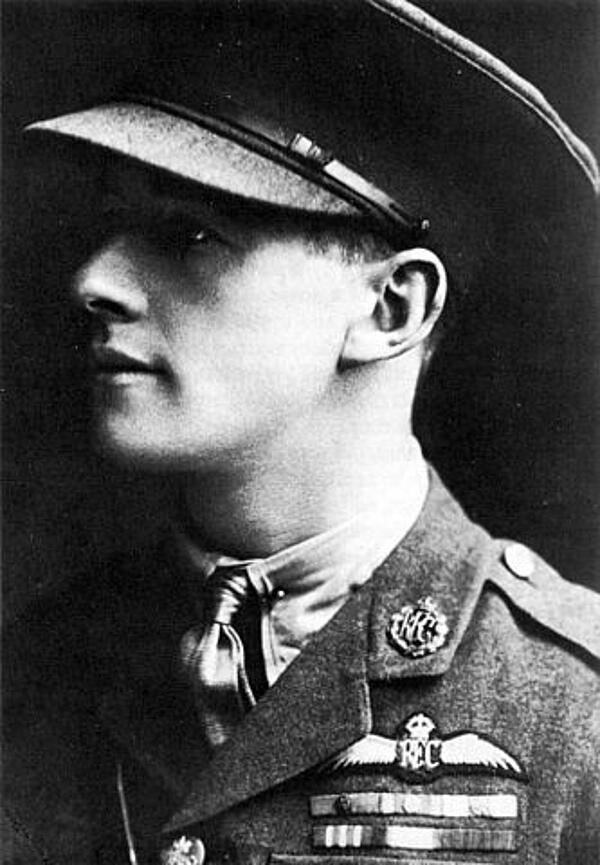James McCudden
James McCudden was one of the most successful flying ‘aces’ of World War One, credited with being the seventh on the list of all fighter pilots in terms of the number of kills he made.
James McCudden was born on 28th March 1895 into a military family and he chose to join the Royal Engineers in 1910. In 1913, he trained as a mechanic and transferred to the newly formed Royal Flying Corps. In August 1914 at the start of World War One, he went to France and was allowed to fly as an observer, gathering intelligence and reconnaissance.
In January 1916, McCudden chose to return to England to learn how to fly and was awarded his wings two months later. He returned to France as a sergeant and in September 1916 he shot down his first plane.
In 1917, McCudden was awarded a commission and a Military Medal, as well as a Military Cross. He had also gained himself a reputation as a highly skilled pilot with thoughtful and logical tactics and approaches to his tasks. In addition, he became known for looking out for the younger pilots, often protecting them while in combat in the air.

His success and leadership qualities led to him being awarded a Victoria Cross in April 1918. The citation for the award read as follows:
“For most conspicuous bravery, exceptional perseverance, and a very high devotion to duty. Captain McCudden has at the present time accounted for 54 enemy aeroplanes. Of these, 42 have been destroyed, 19 of them on our side of the lines. Only 12 out of the 54 have been driven down out of control. On two occasions, he had totally destroyed 4 two-seater enemy aeroplanes on the same day, and on the last occasion all 4 machines were destroyed in the space of one hour and thirty minutes. While in his present squadron, he has participated in 78 offensive patrols, and in nearly every case has been the leader. On at least 30 occasions, whilst with the same squadron, he has crossed the lines alone, either in pursuit or in quest of enemy aeroplanes. The following incidents are examples of the work he has done recently: on 23 December 1917, when leading his patrol, 8 enemy aeroplanes were attacked between 1430/1550 and of these 2 were shot down by Captain McCudden in our lines; on the morning of the same day, he left the ground at 1050 and encountered 4 enemy aeroplanes and of these he shot 2 down; on 30 January 1918, he, single-handed, attacked 5 enemy scouts, as a result of which 2 were destroyed. On this occasion, he only returned home when the enemy scouts had been driven far east; his Lewis gun ammunition was all finished and the belt of his Vickers gun had broken. As a patrol leader he has at all times shown the utmost gallantry and skill, not only in the manner in which he has attacked and destroyed the enemy, but in the way he has, during several aerial fights, protected the newer members of his flight, thus keeping down their casualties to a minimum. This officer is considered, by the record he has made, by his fearlessness, and by the great service which he has rendered to his country, deserving of the very highest honour. “
Sadly, McCudden died in a flying accident, rather than in combat, on 9th July 1918. While flying, his aeroplane suffered engine failure after taking off and he was killed as it crash landed.
McCudden was ultimately credited with 57 kills during he war, and his made awards made him one of the most decorated combatants of the whole of World War One.
MLA Citation/Reference
"James McCudden". HistoryLearning.com. 2026. Web.
